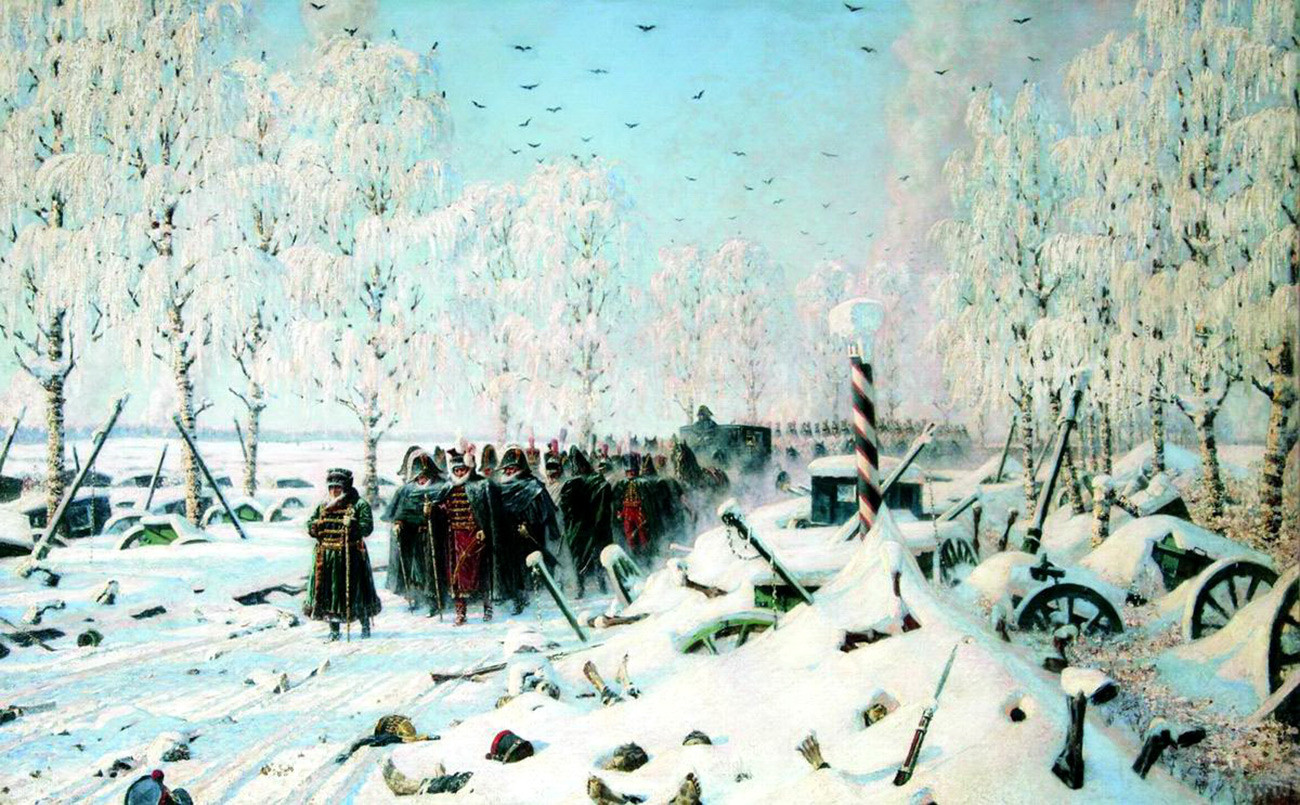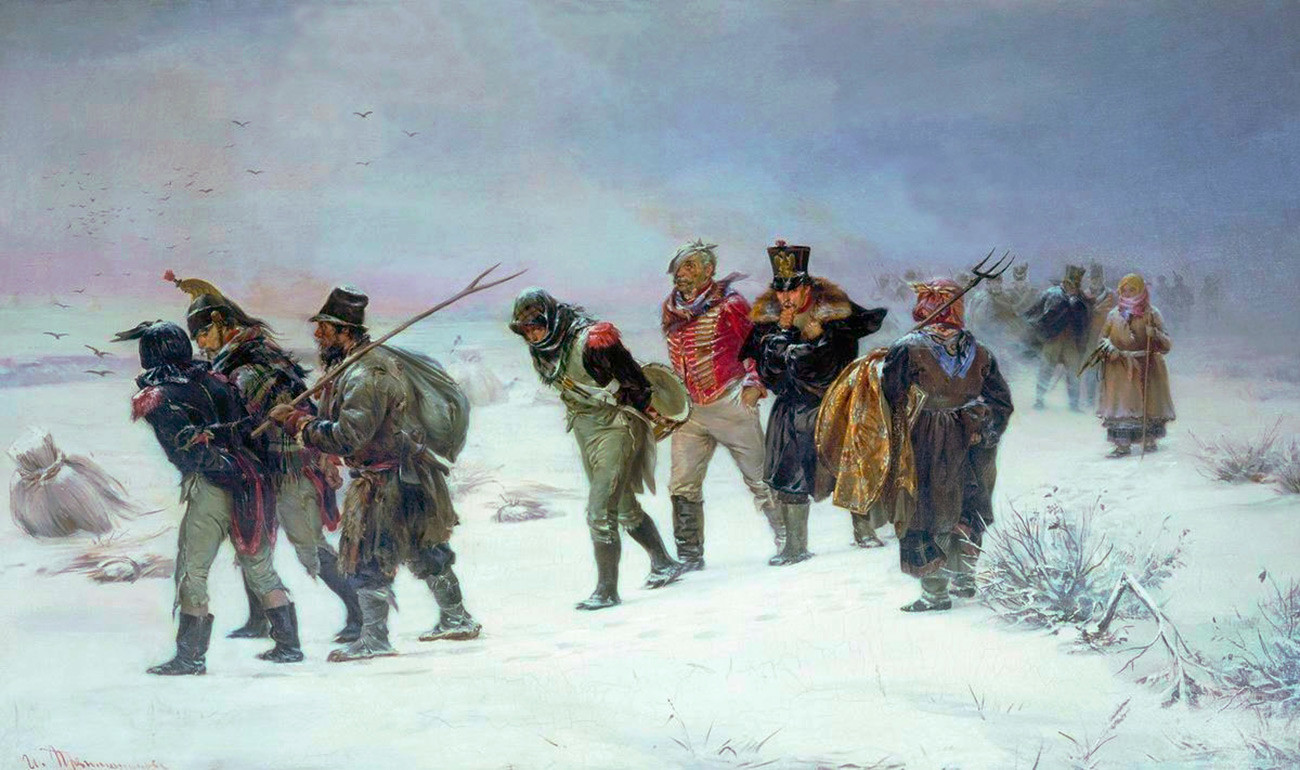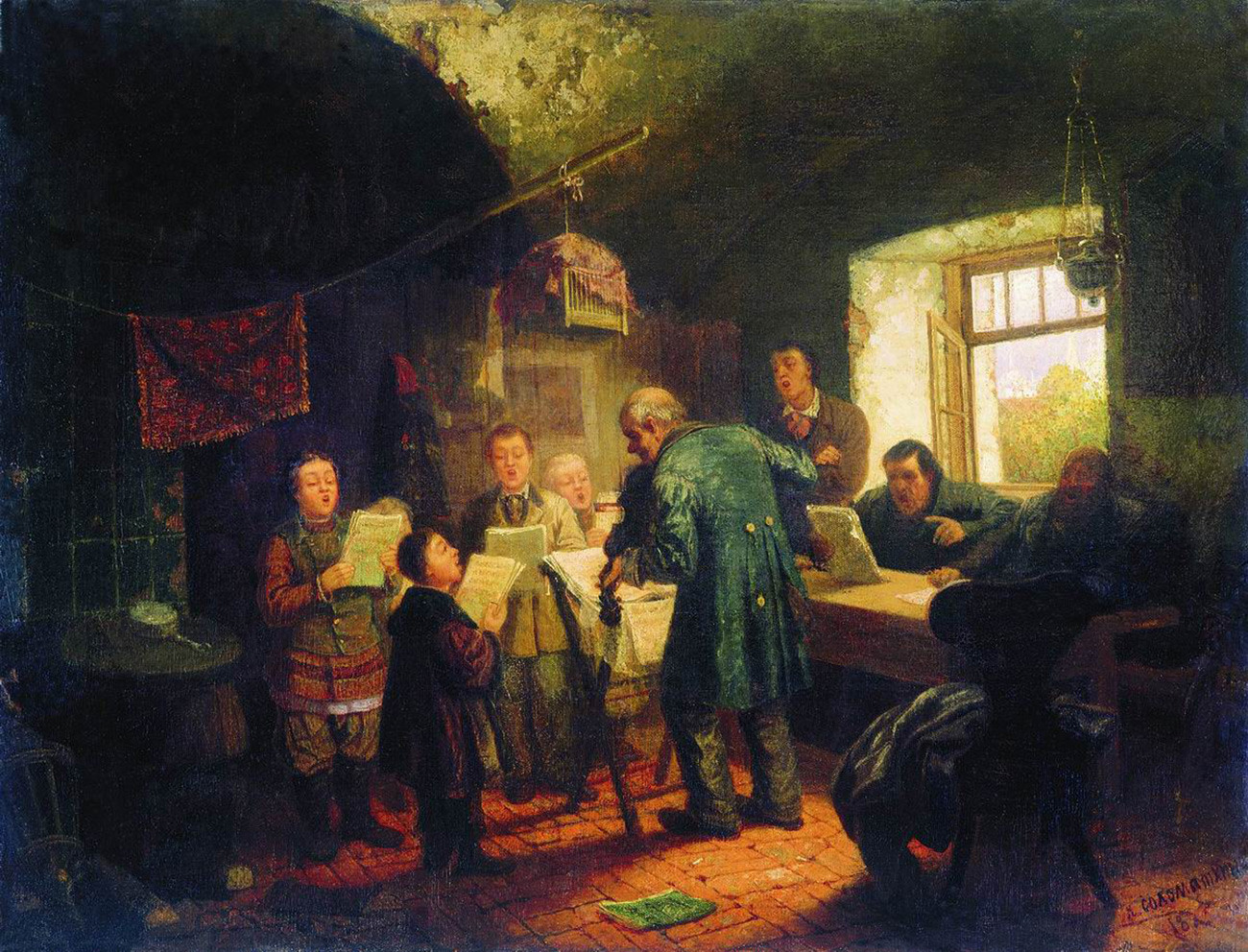Jacques-Louis David/ countrywide Gallery of paintings; Ivan Avdonin/МАММ/MDF/russiainphoto.ru; Pixabay
The testimonies of their starting place are as impressive as they are inaccurate, right here's why!
currently, we explained that French 'bistrot' wasn't dropped at France via the Russians in 1812, opposite to a favored legend. There are a few French-sounding phrases in the Russian language, too – and rumors have it they have been introduced from France during the battle of 1812. We clarify why it's incorrect.
1. Шваль (shval')
Vasily Vereshchagin
In Russian, the note шваль (shval') skill a low-key, nugatory person; a scum of society.
The legend about its beginning is somewhat absurd. It traces the observe's beginning from "cheval," the French observe for 'horse.' When the French army fled Russia, hungry officers looked for dead horses on the sides of the roads – their rations had lengthy in the past run out and that they were able to devour carrion (roadkill). whereas attempting to find horses, the French officers addressed the Russians, announcing handiest this observe – "cheval;" they had been ragged and dirty. this way, so the legend goes, the word got here to imply scum.
however this legend has an glaring flaw. Russian peasants wouldn't consult with French officers – they might have most likely attacked them since the French army pillaged Russia all the way through its onslaught, which made all peasants vengeful, not social.
most significantly, the observe шваль seemed in Russian before the nineteenth century. it's derived from the verb "шить" (to stitch) and potential quite a few threads, rags, and patches – disposable garbage it really is all the time round at a tailor's workshop. With time, this collective picture got here to denote low-class public.
2. Шаромыжник (sharomyzhnik)
Illarion Pryanishnikov
it's obtrusive that the legend about this observe came to exist because it resembles the French words "cher ami" ("expensive pal"). once more, the French officers, begging for meals on their retreat throughout the frozen plains of Russia, requested peasants to spare anything, addressing them as "cher ami." Peasants would nickname them "sharomyzhnik," which came to word now not handiest a beggar, however a crooked beggar – these officers who were humbly begging had definitely come to Russia to overcome it.
but sounding alike doesn't mean the words are connected. In Russian, there's an obsolete expression "на шаромыгу" ("na sharomygu"), which means "at no cost". The expression become used with the aid of Nikolay Gogol in his play "The executive Inspector" and can be present in the letters written with the aid of Alexander Pushkin. The expression is derived from an historic Russian be aware, "шарма" (sharma), "at no cost." So it has nothing to do with French soldiers and the peasants who didn't take into account French (not to mention make any nicknames out of it!)
3. Шантрапа (shantrapa)
Leonid Solomatkin
now not all French officers left Russia after Napoleon's military became defeated and mostly disbanded. Some have been taken as captives, some simply refused to come back to France, since the Bourbon dynasty turned into restored, and the officers feared they would be put on trial.
Many Frenchmen stayed as home teachers for the children of Russian nobles, and infrequently, as directors for serf theaters that Russian landlords loved to organize at their country estates. French tutors had been those who demonstrated whether peasants could sing in a serf theatre choir, and if the would-be singers had been now not certified sufficient, the tutors would say: "Chantera pas" ("Will not sing" in French). on account of this, "shantrapa" came to imply an unable, low-key adult.
once again, sounding alike doesn't imply the phrases are related. also, there were no longer so many serf theaters in nineteenth-century Russia that this observe could have won prominence just on account of this. intellect you, most Russian landlords have been poor and will barely pay taxes – serf theaters had been obtainable only to the elite.
The observe шантрапа (shantrapa) became obviously derived from historical Czech be aware, "šаntrосh" (liar, deceiver). This notice became normal in the spoken language of Cherepovets, Yaroslavl, Velikiy Ustyug – which capacity that the word didn't have French origins given that the peasants of these regions didn't communicate French.
If the usage of any of Russia beyond's content material, partly or in full, at all times give an energetic hyperlink to the common material.
we have now got more than 1,5 million followers on facebook. be a part of them!
No comments:
Post a Comment